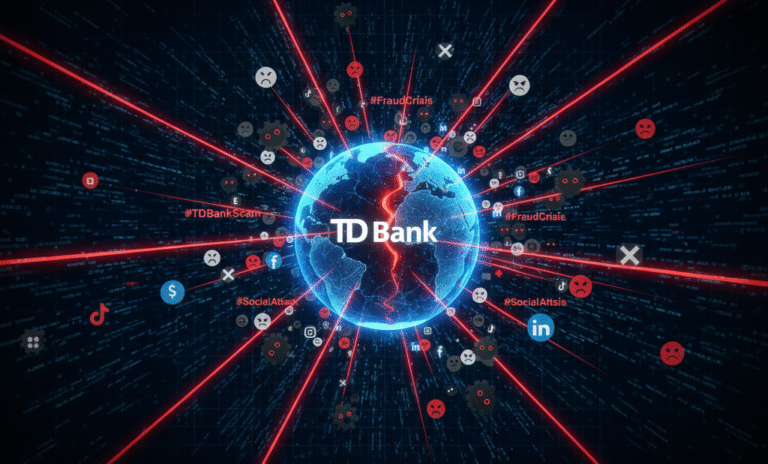Google’s self-driving car company, Waymo, has recently encountered a series of collision incidents that have raised safety concerns and led to a product recall.
Criticism towards Waymo has erupted on social media when the recall was announced. Cyabra uncovered that 13% of accounts in the conversation were fake, demonstrating the significant impact of bots on online discourse and brand reputation.
TL;DR?
- In the Span of one month, 13% of the profiles that discussed Waymo on X (Twitter) were fake.
- The fake profiles were most active after February 13, when Waymo announced the recall. On this day, over 37% of the conversation was generated by bots.
- The fake profiles amplified negative discourse, reaching over 522,000 views.
Online Discourse the Hard Way(mo)
Waymo, the autonomous driving subsidiary of Google, is one of the companies at the forefront of innovation in transportation technology.
However, recent incidents have highlighted challenges in this pursuit. After a voluntary recall of 444 self-driving vehicles after two minor collisions in quick succession in Arizona, Cyabra studied the increase in critical online discourse, and discovered a major part of it was led by fake accounts.
Cyabra scanned 1,287 X (Twitter) profiles that interacted with the phrase “Waymo” between January 19 and February 19 and discovered that 13% of them were fake. These fake accounts were mostly active from February 13 – the day that Waymo filed a voluntary recall report of their vehicle software – onward. The most active day for fake profiles was February 14, the day after the recall was announced.
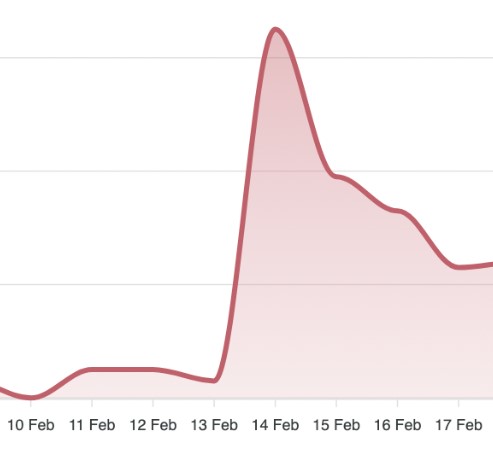
The fake profiles posted content that related to the recall: they shared images of Waymo’s vehicles burning, and asserted that the cars lacked the professionalism to operate autonomously, portraying the company as irresponsible. Below are some of posts created by fake profiles.
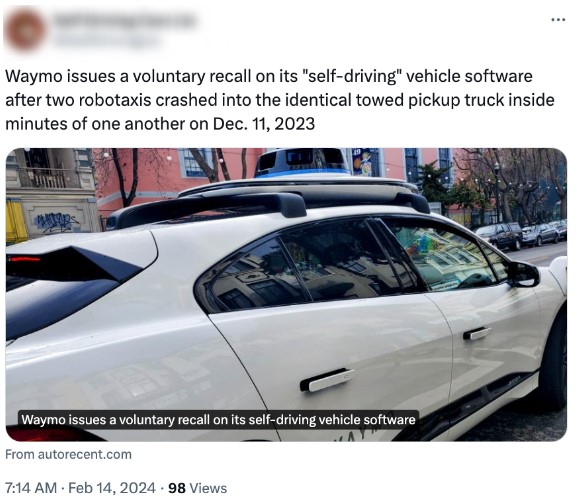
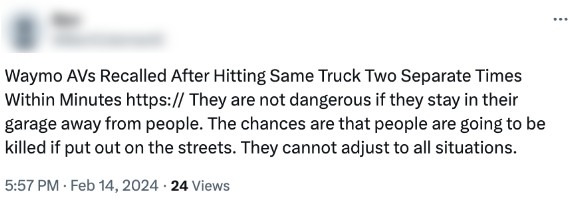
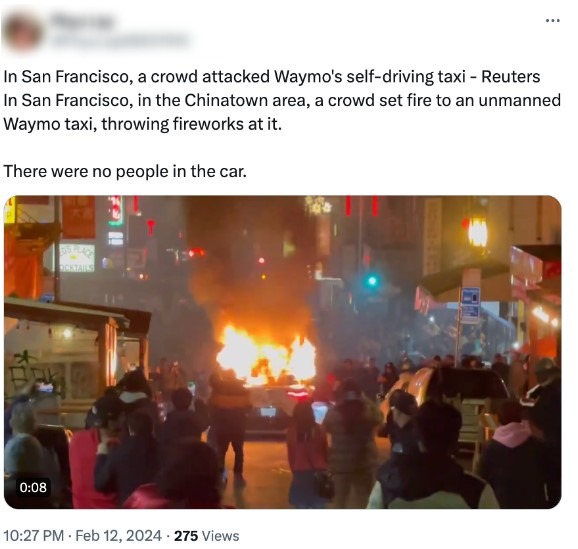
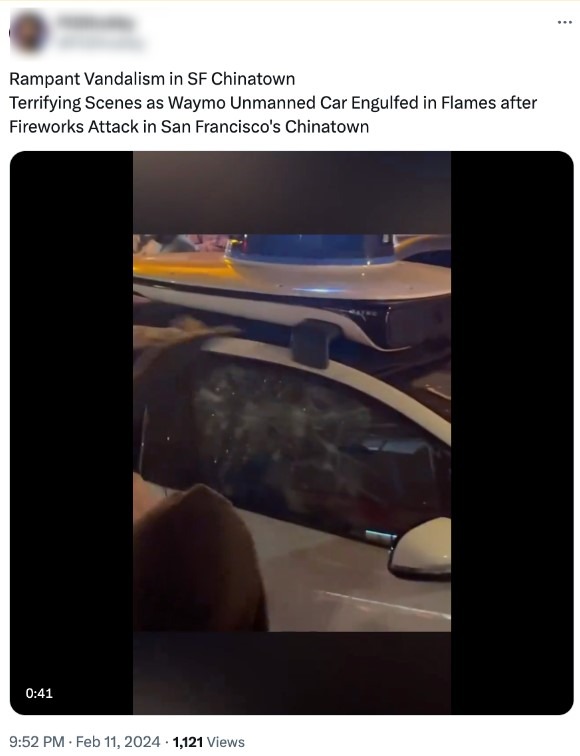
37% of the conversation about Waymo was generated by fake profiles. The fake profiles amplified negative discourse, making it appear much bigger than it actually was, and causing the negative trend to rise and reach new audiences. The fake profiles’ posts reached over 522,000 potential views.
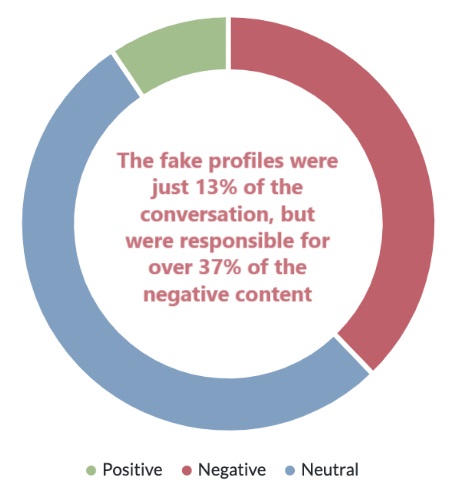
Bucking the Bots
As Waymo navigates the aftermath of recent incidents and grapples with safety concerns and regulatory scrutiny, it finds itself under attack by fake accounts spreading negative discourse and skepticism. The emergence of fake accounts amplifying negativity underscores the need for heightened vigilance and innovative crisis management strategies among companies facing public scrutiny.
As brands like Waymo confront the very real challenges of brand reputation risks during times when online bots are easier than ever to purchase and operate, it becomes imperative to use sophisticated tools and technologies to identify and mitigate the impact of fake profiles on public perception. For insights into smarter crisis management tools and detecting fake profiles, Contact Cyabra.

